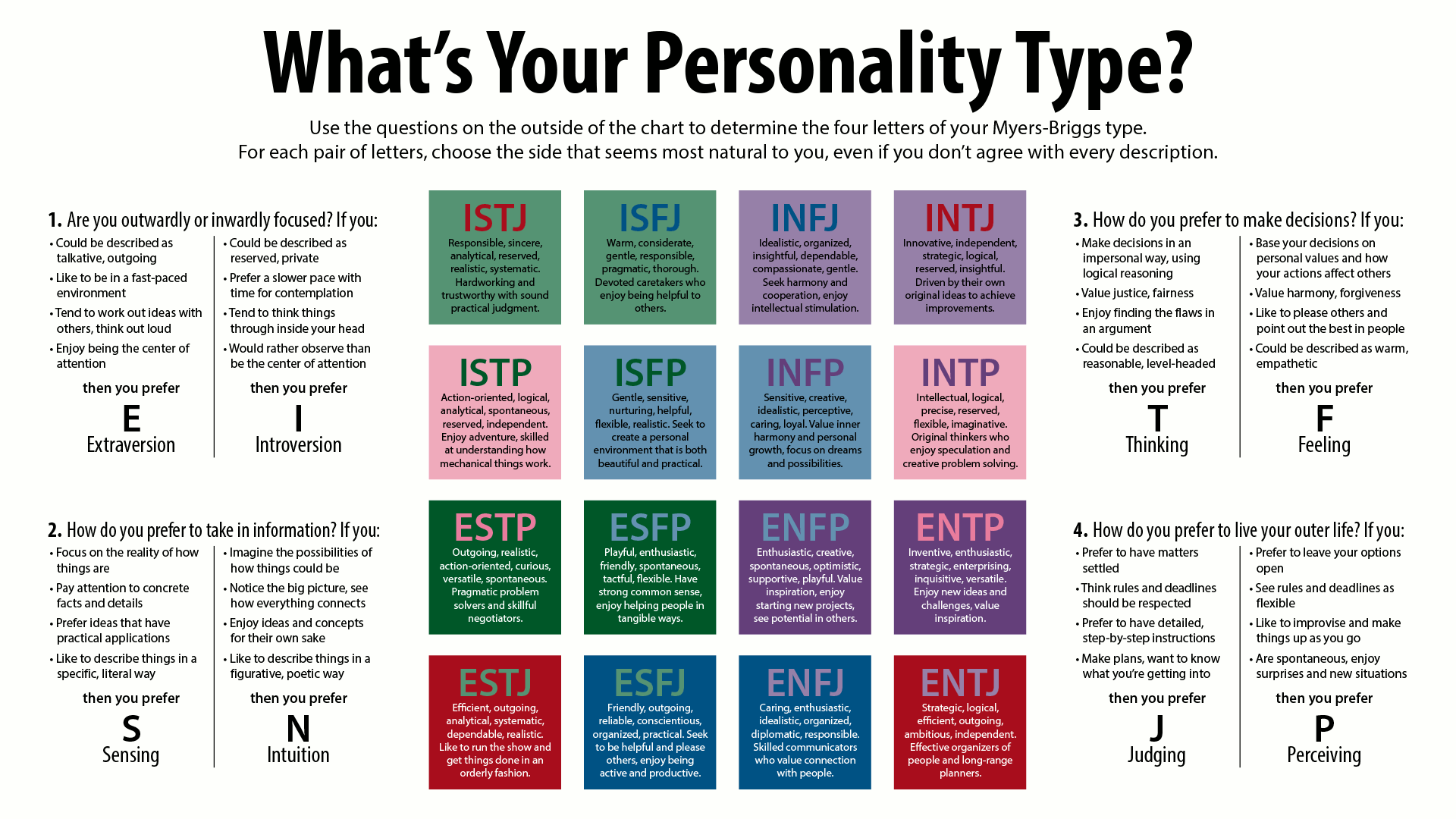There is a distant history in the description of the four hippocratic temperaments: melancholy (pessimistic), bloodthirsty (optimistic), angry (irritable), and phlegmatic (apathetic). In this article, you’ll learn a little more about type D personality.
These temperaments were determined by the relative proportion of the four bodily moods (black bile, blood, yellow bile and phlegm). It is interesting to note that in the primitive Greek theory of these temperaments, current attempts to discover the biogenetic basis of personality were already reflected.
- Personality can be referred to as a mixture of capricious factors.
- Determined by biology.
- And factors determined by the environment.
- So genetic inheritance and environment influence each person’s personality.
There is some consensus when it comes to understanding personality as the union of two entities, these components of personality would be:
What depends, that of all people who have a certain genetic marker of a certain disease, some will develop it and others will not?In this sense, the role of personality becomes relevant in the predisposition and subsequent development of the disorder. disease.
Is personality associated with certain psychophysiological response models? What psychophysiological regimes regulate susceptibility to disease? The relationship between personality and disease, between the psychological and the physiological, is not easy to establish; in fact, there are still many issues around you.
Different personality or behavior models have been established to try to answer these questions, for example, the personality-centered models proposed by Suls and Rittenhouse (1990) attempt to explain the relationship between behavior and health based on traits and traits that determine people’s behavior. .
The patterns of behavior or personality to which we refer were named with the letters A, C and D. Each of them carries health risks.
The type A behavior pattern is related to cardiovascular disorders. People with a type C pattern are more likely to develop cancer. Finally, the type D pattern (or D personality) is associated with depression and anxiety, and they are more likely to develop cancer. coronary heart disease.
Type D personality is characterized by maximum containment of negative emotions; people who have this type of personality systematically inhibit their emotional expressiveness; they are also characterized by the resulting social inhibition; They also often have subjective feelings of tension, anxiety, anger, and sadness.
Social inhibition is the tendency to inhibit the expression of emotions in social interaction; In turn, negative affectivity is defined as a style of adaptation that produces individual differences in psychological suffering, somatic complaints and the concept of itself.
This combination of negative affectivity and social inhibition can be found in people with type D personality, which has a negative impact on health. For example, depression and social inhibition have been shown to be factors that can increase mortality from an acute coronary event.
As we can see, type D personality is strongly associated with mortality in patients with coronary heart disease. People who have already had a heart attack and have a type D personality have an increased risk of a second acute episode.
In addition, a type D personality can also indirectly promote coronary artery disease, this is possible through harmful behaviors such as smoking, physical inactivity, and alcohol consumption. There is also a negative impact of this personality pattern on adherence to medical and psychological rehabilitation treatments.
On the other hand, it should be noted that a high level of chronic psychosocial stress in people with type D personality would increase the risk of myocardial ischemia, ventricular arrhythmias and fatal acute events.
Thus, type D personality is primarily characterized by being a predictor of long-term mortality from a heart condition; studies have identified a mortality rate of 23% in patients with type D personality and 7% with another personality type.

